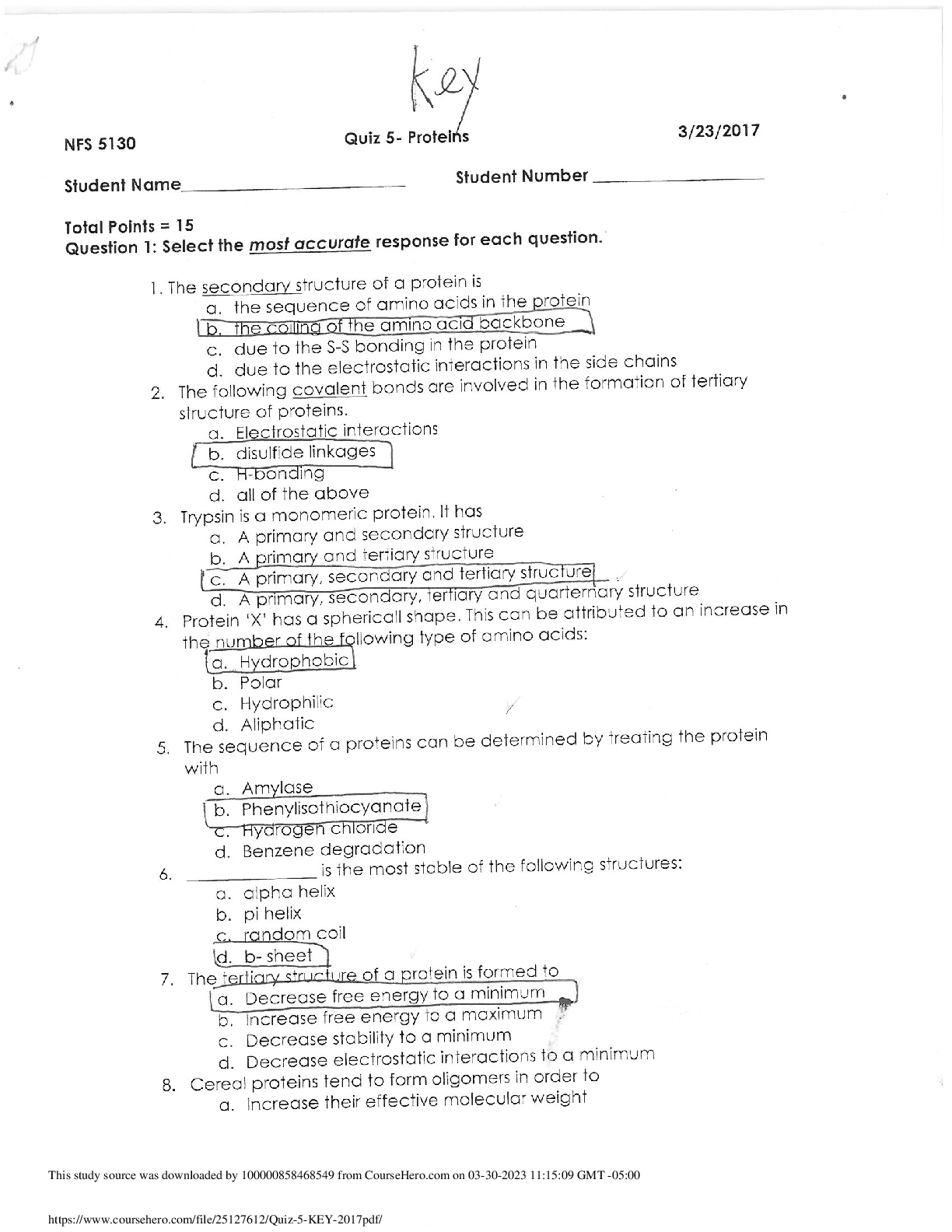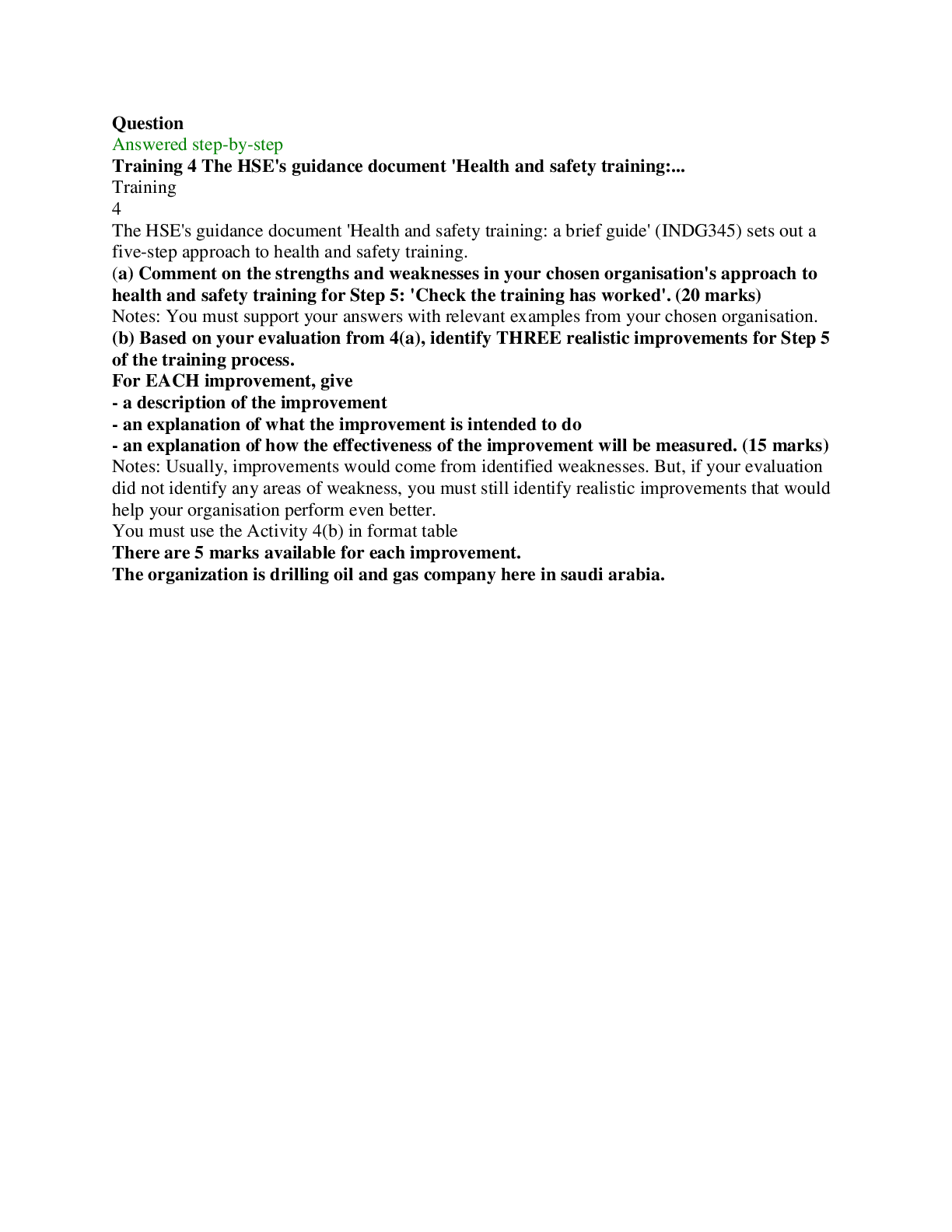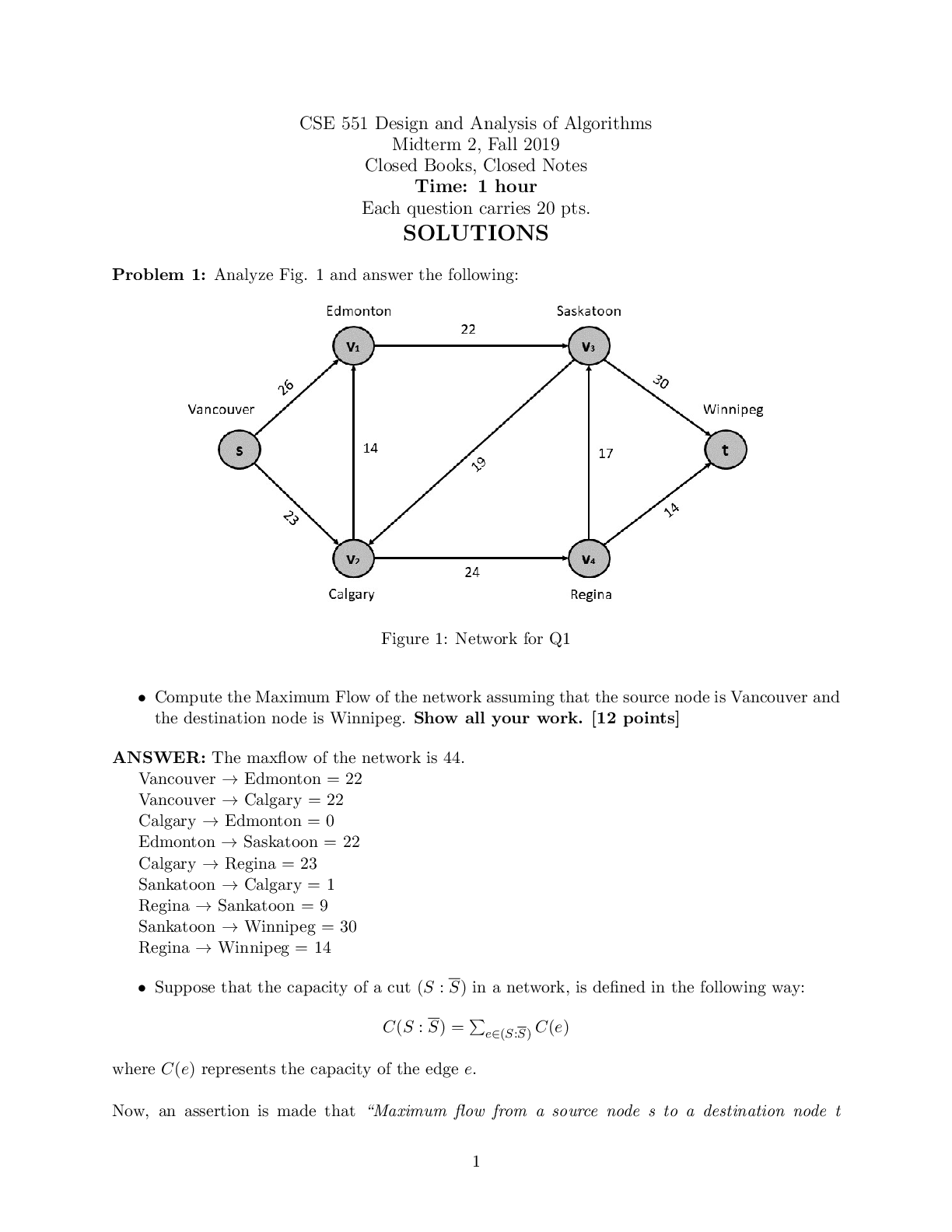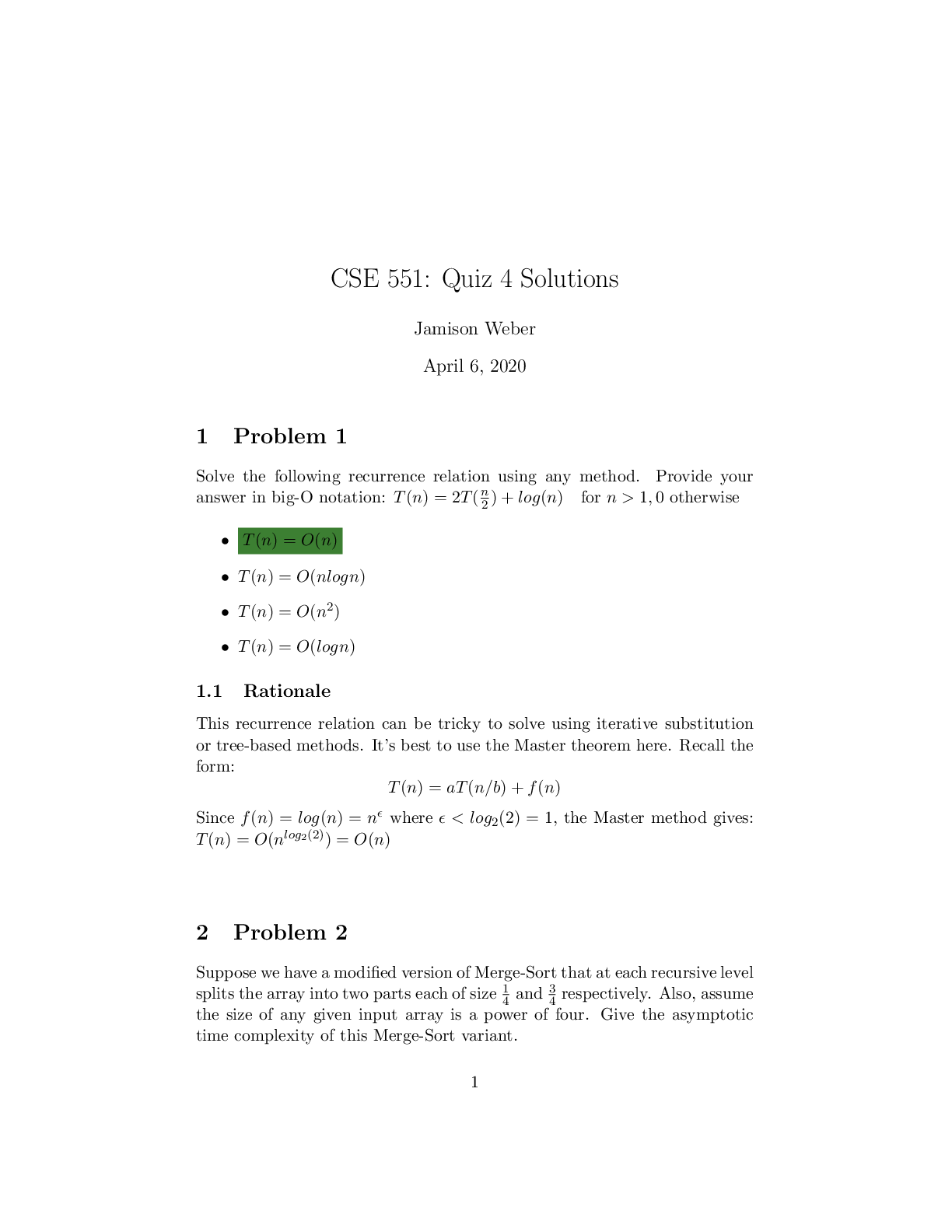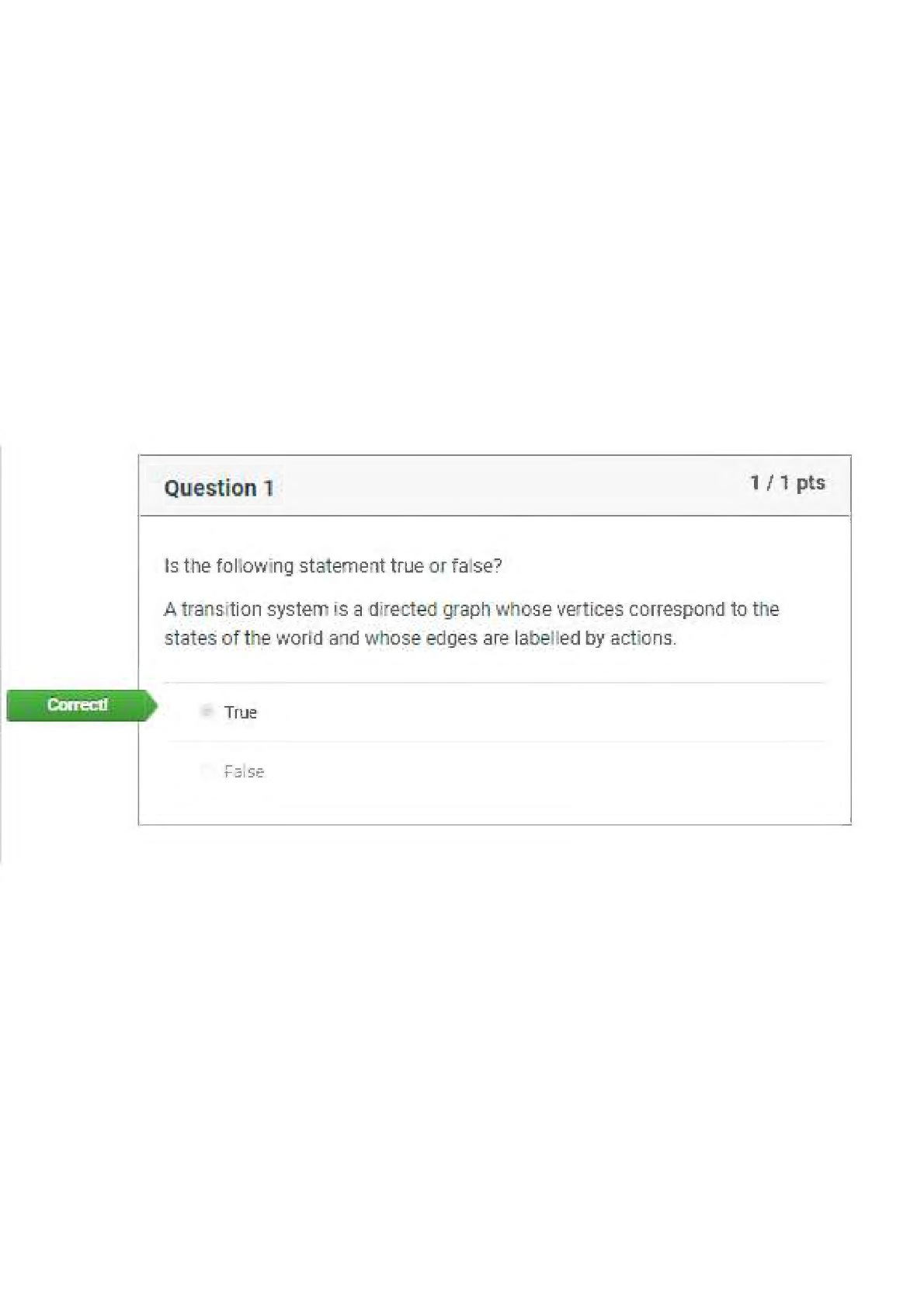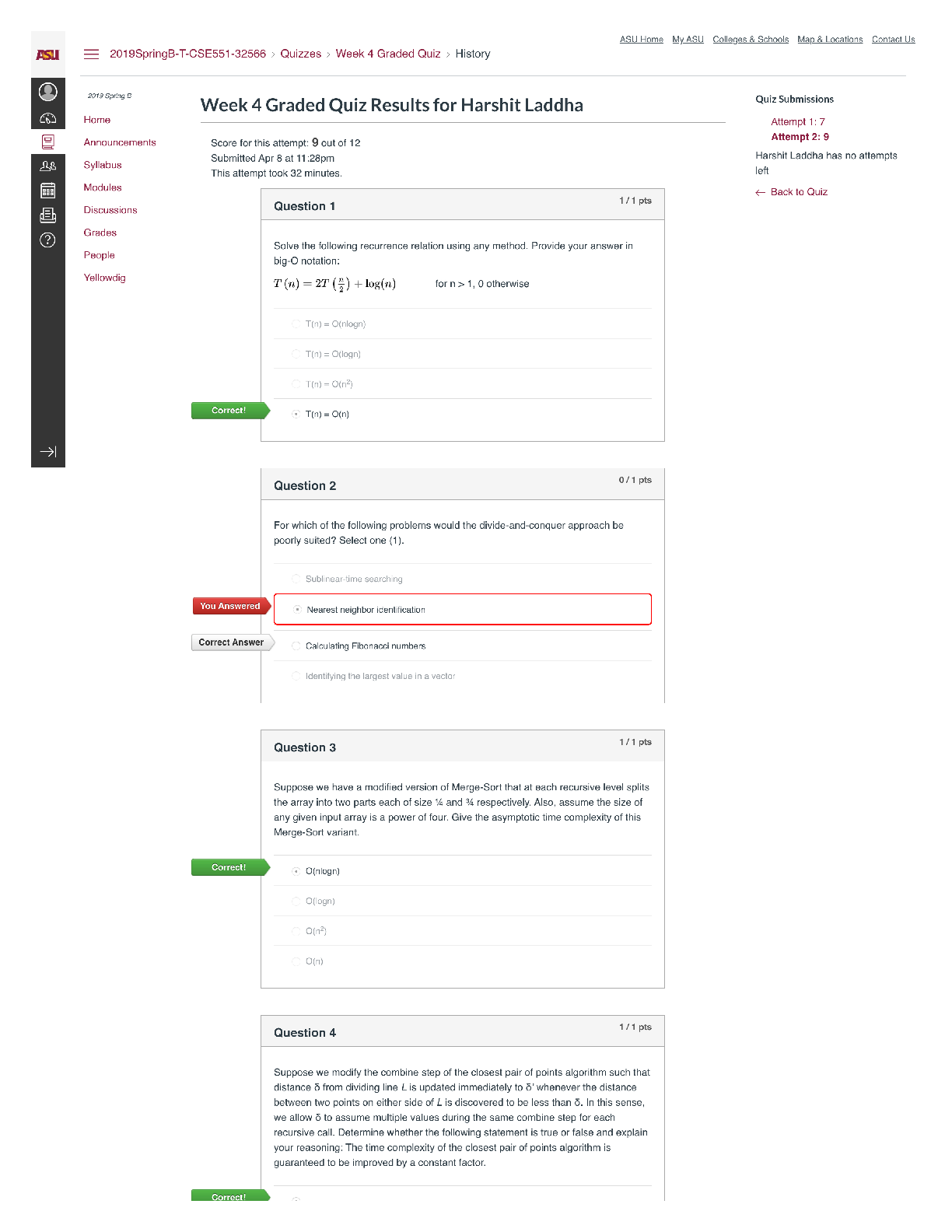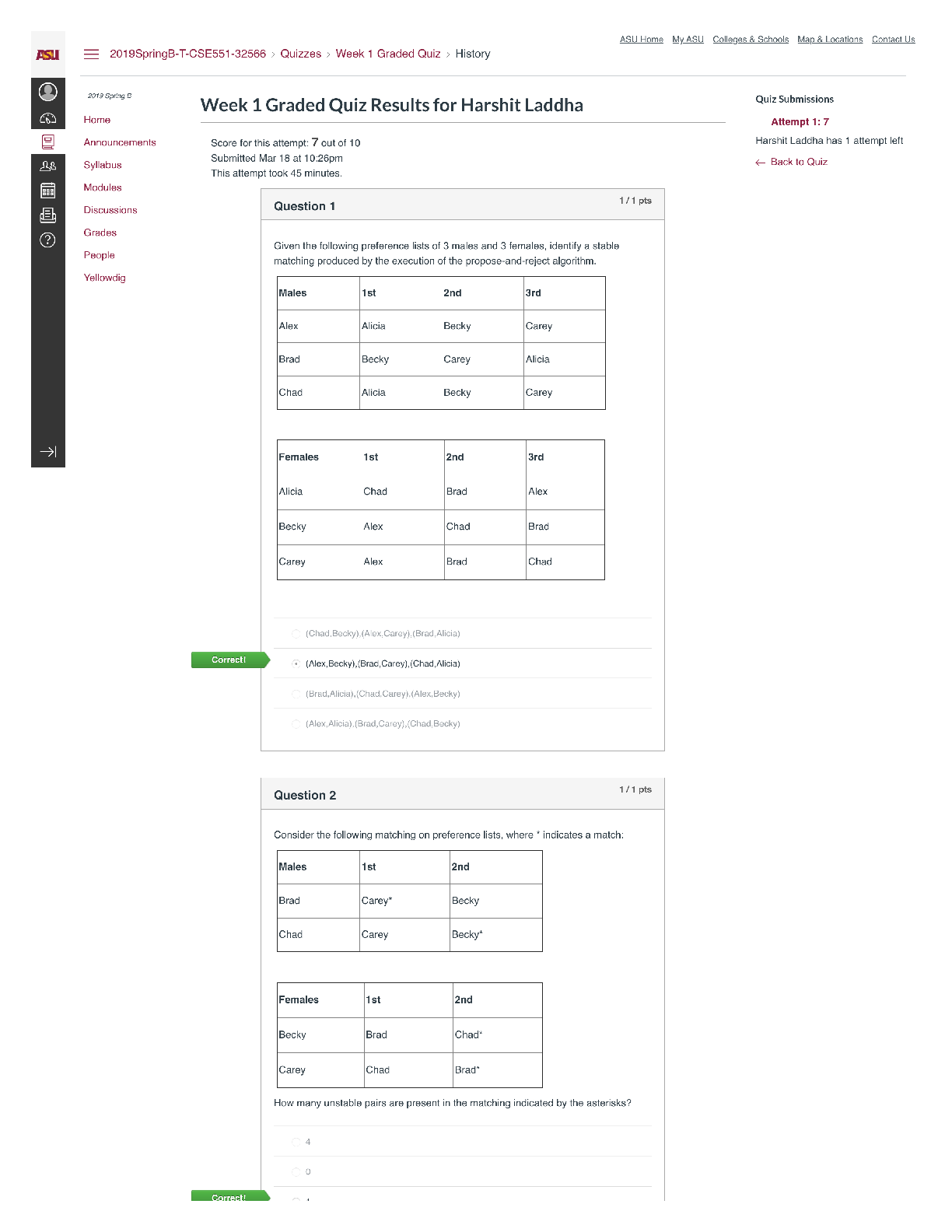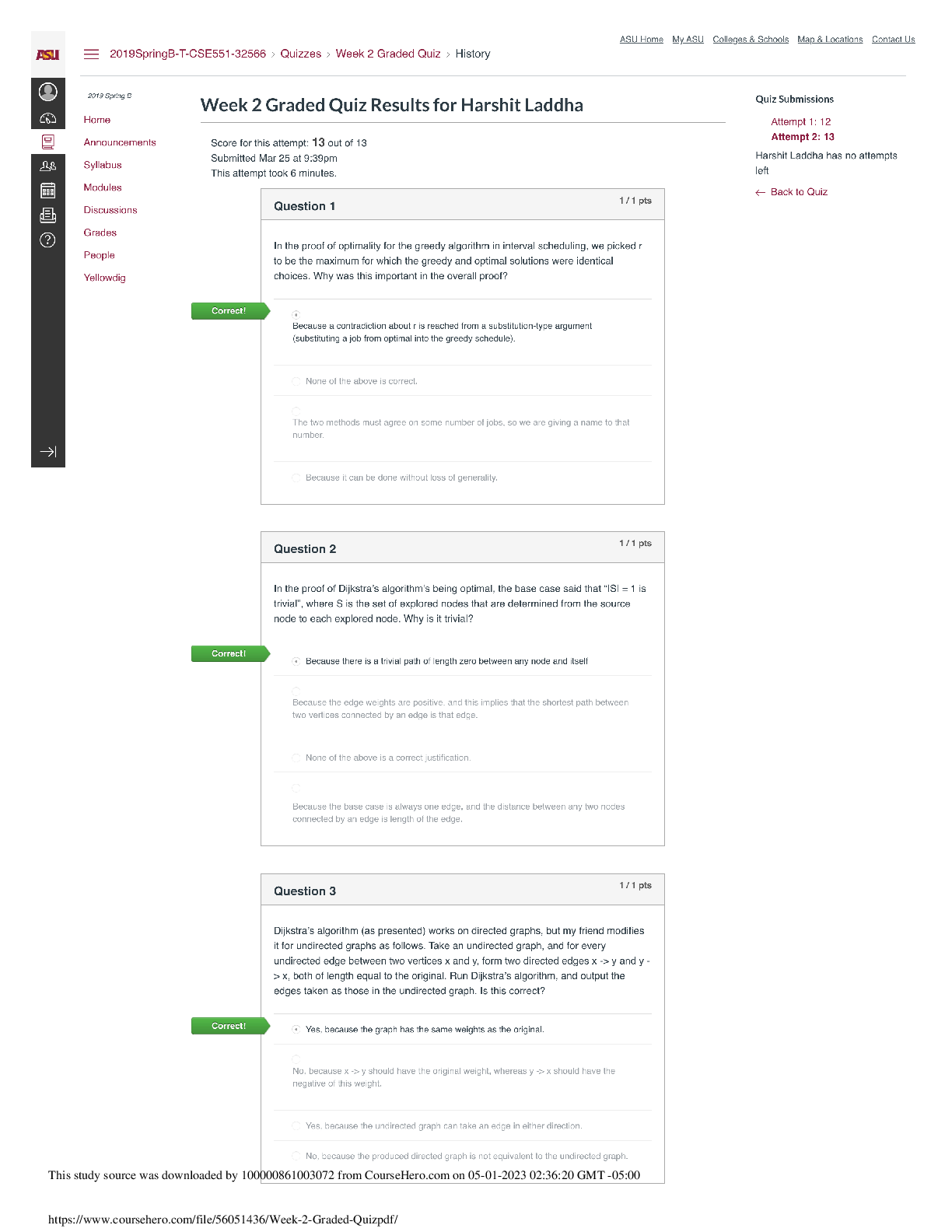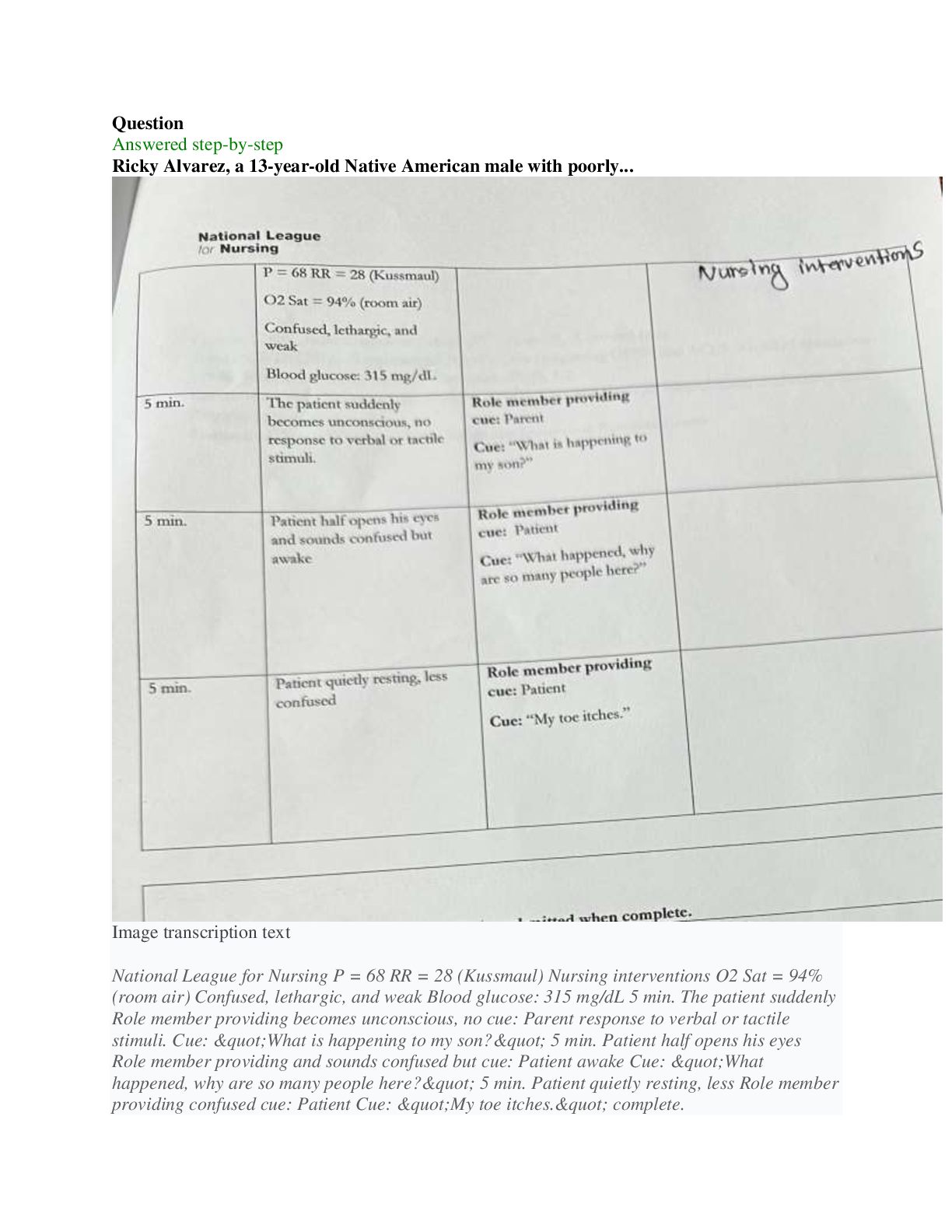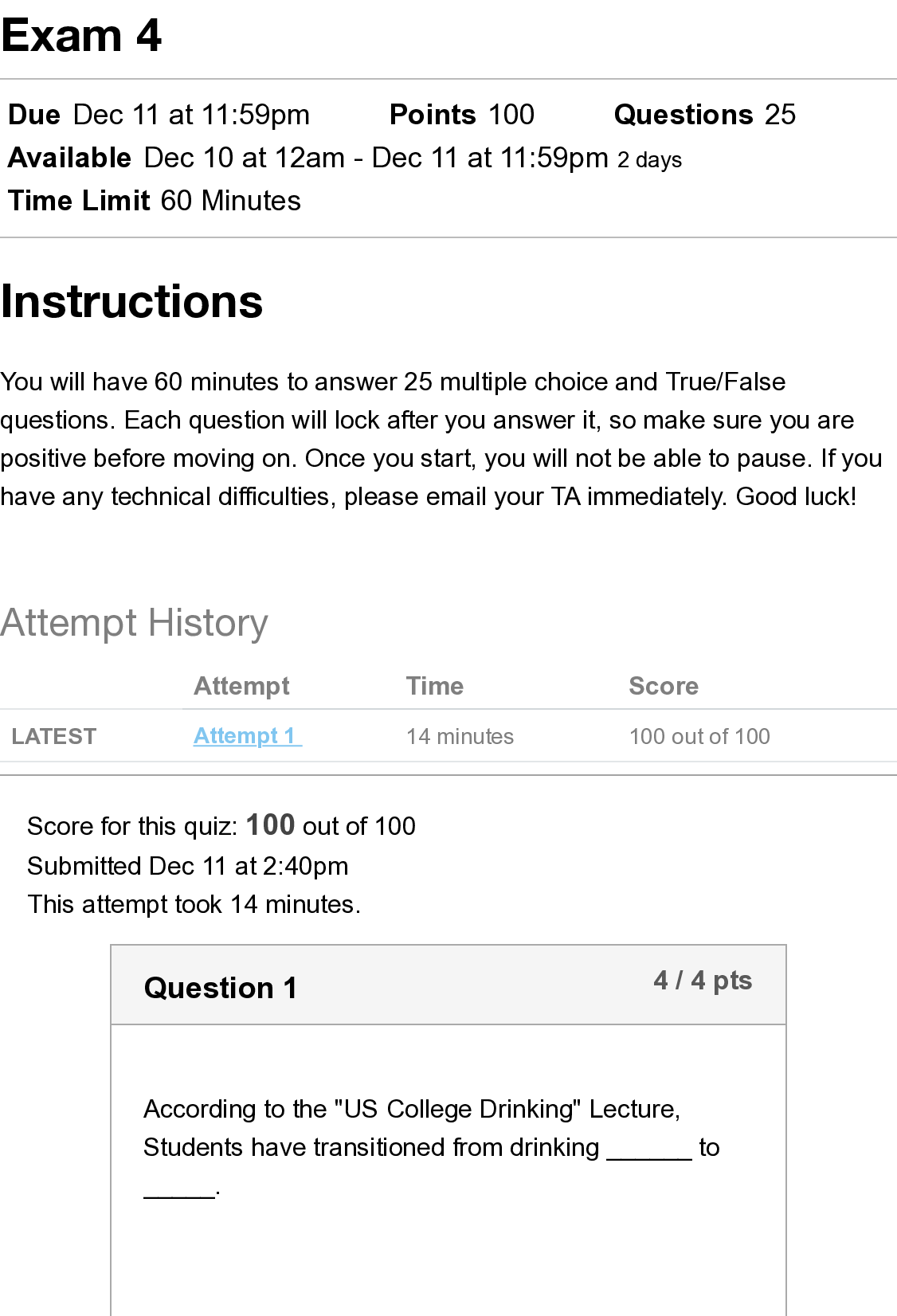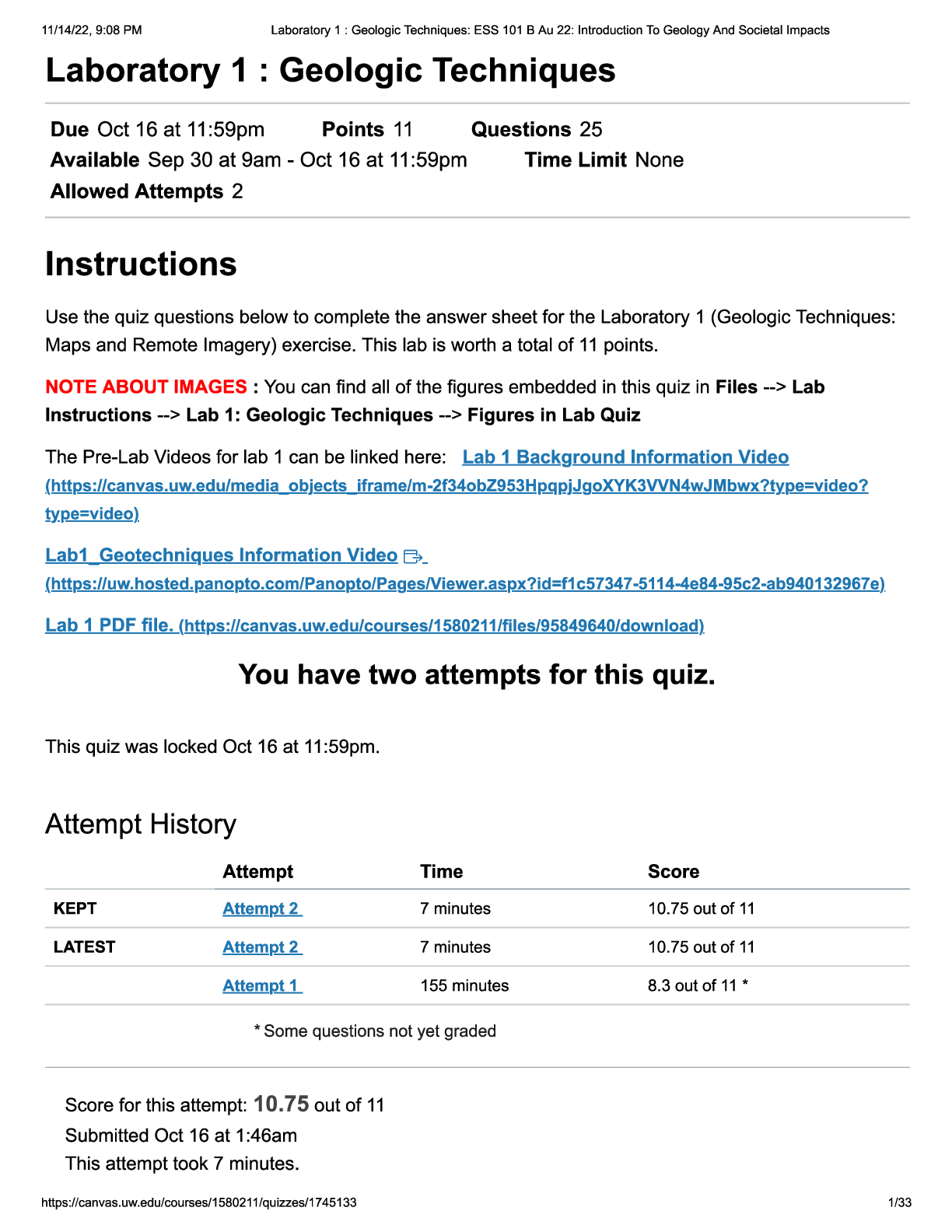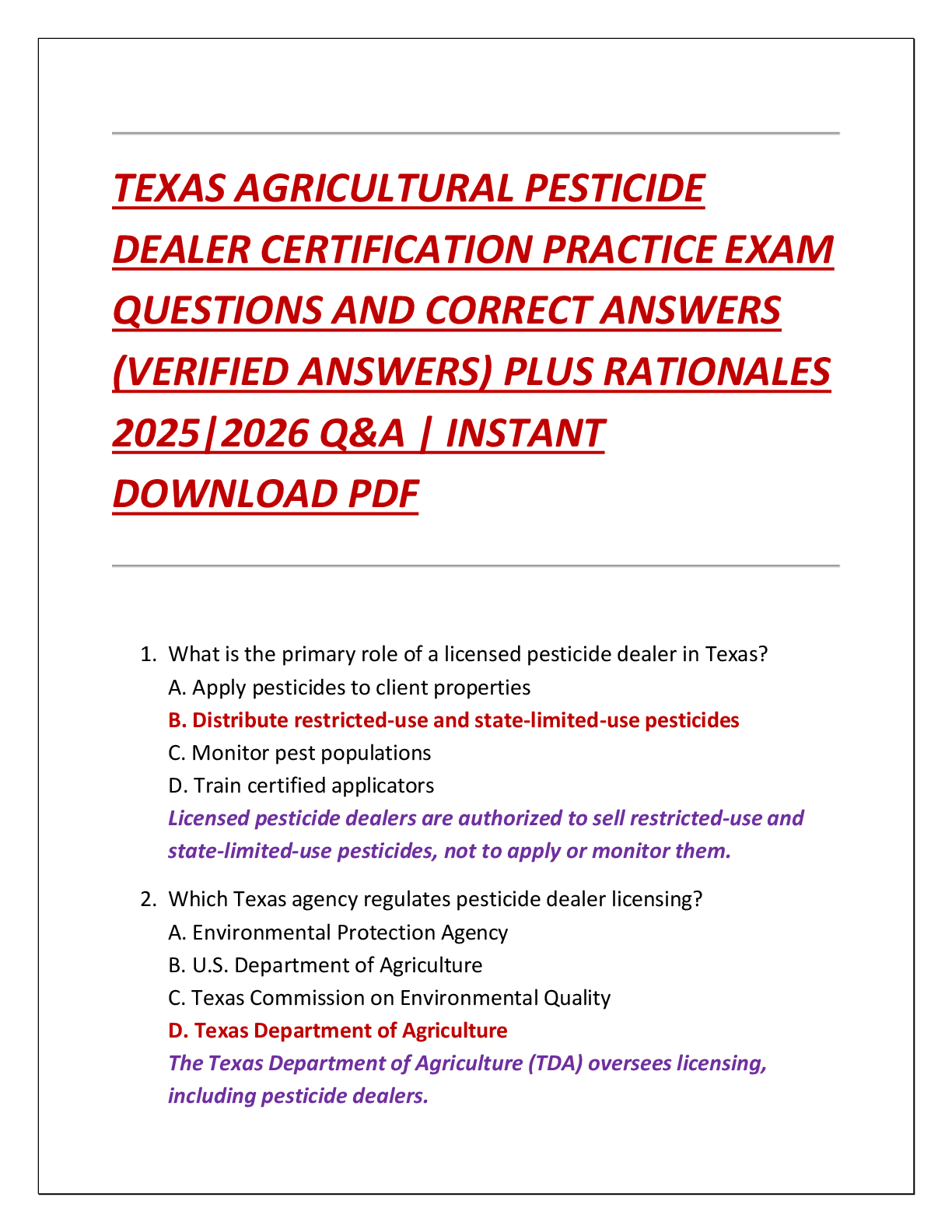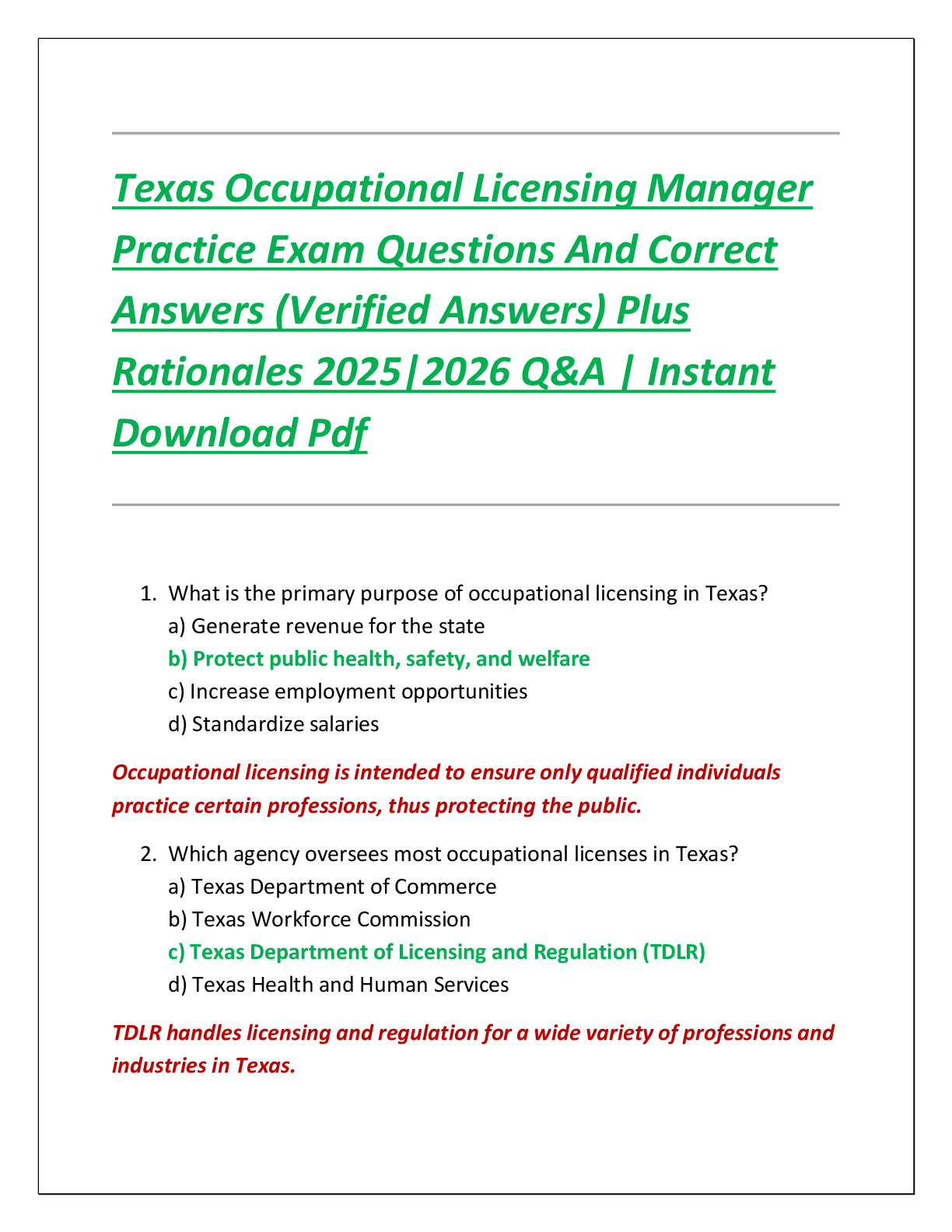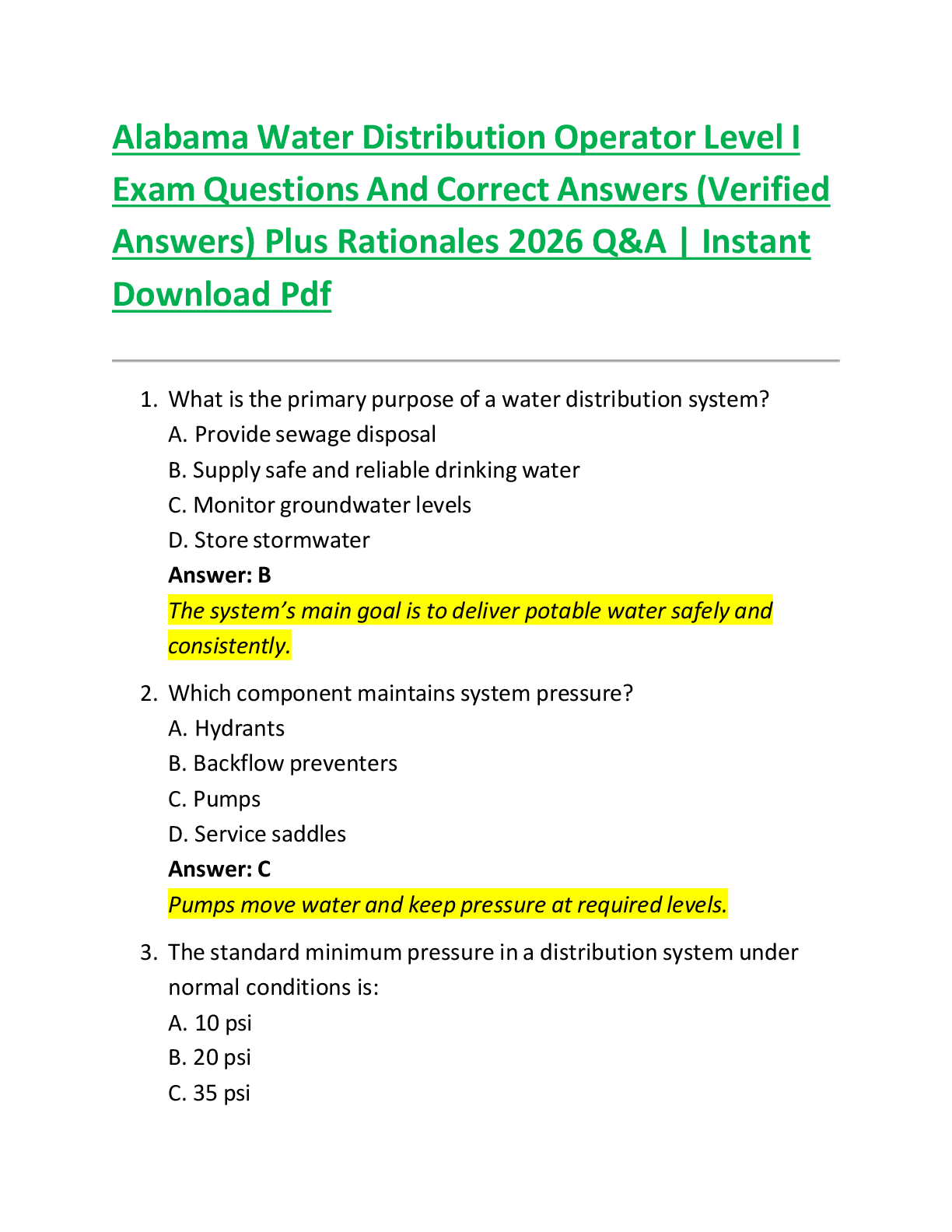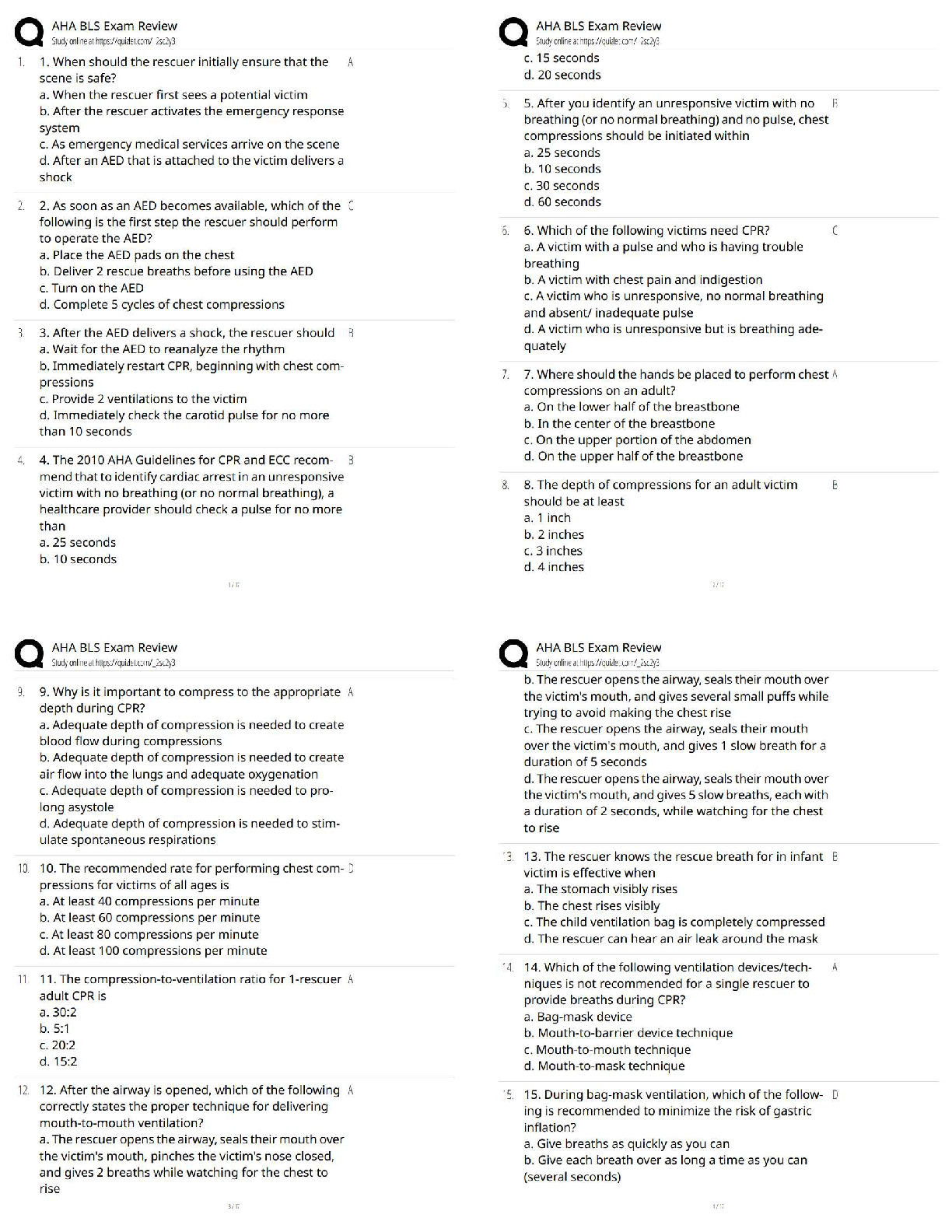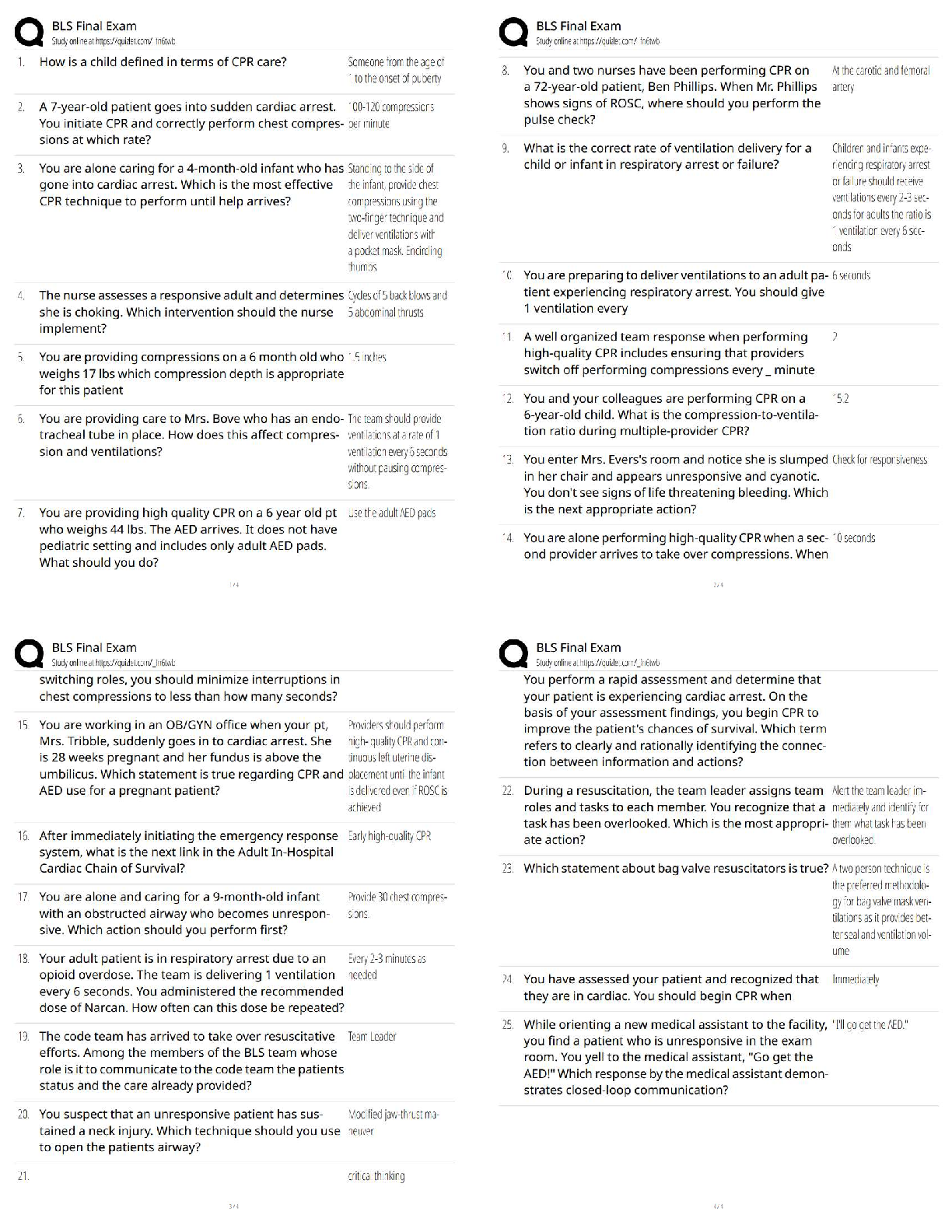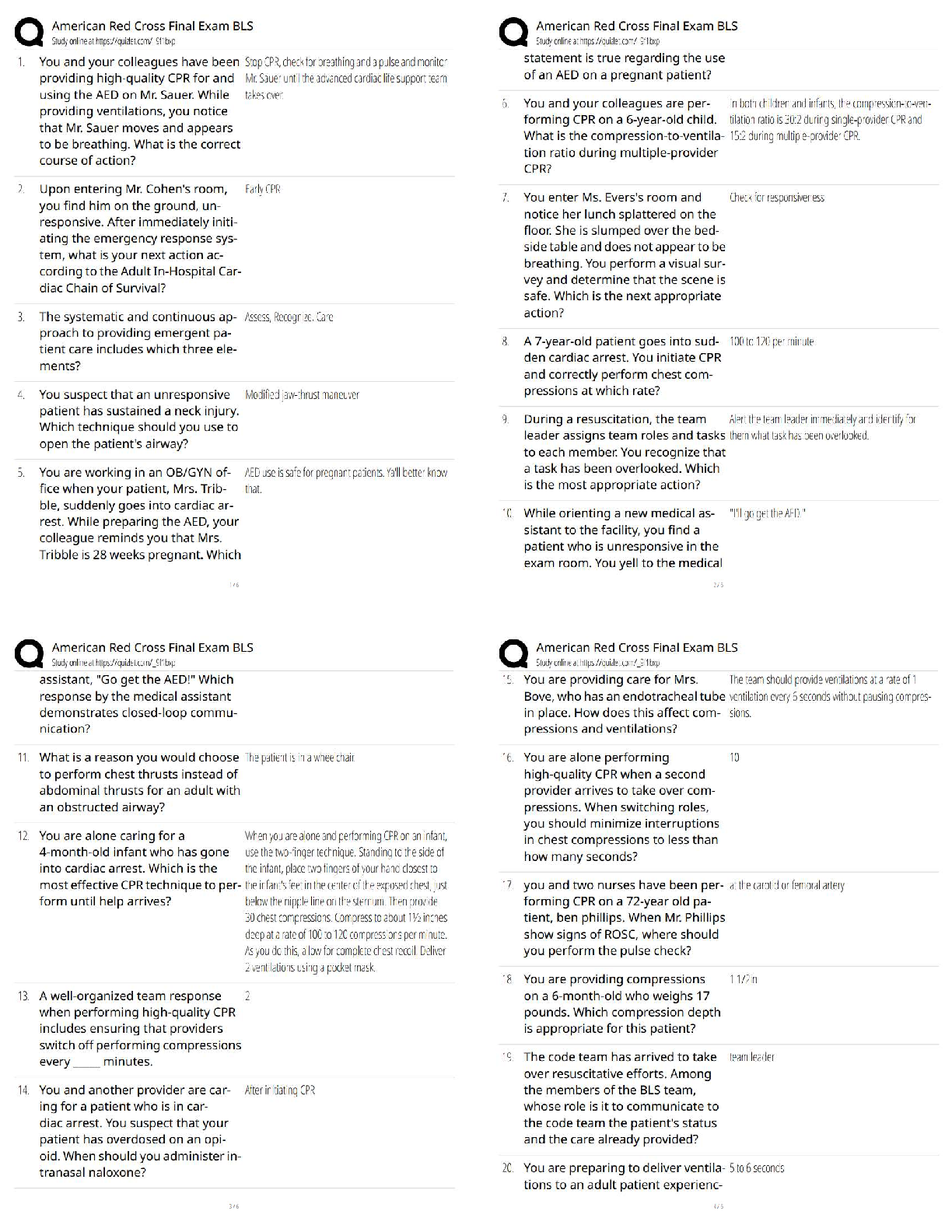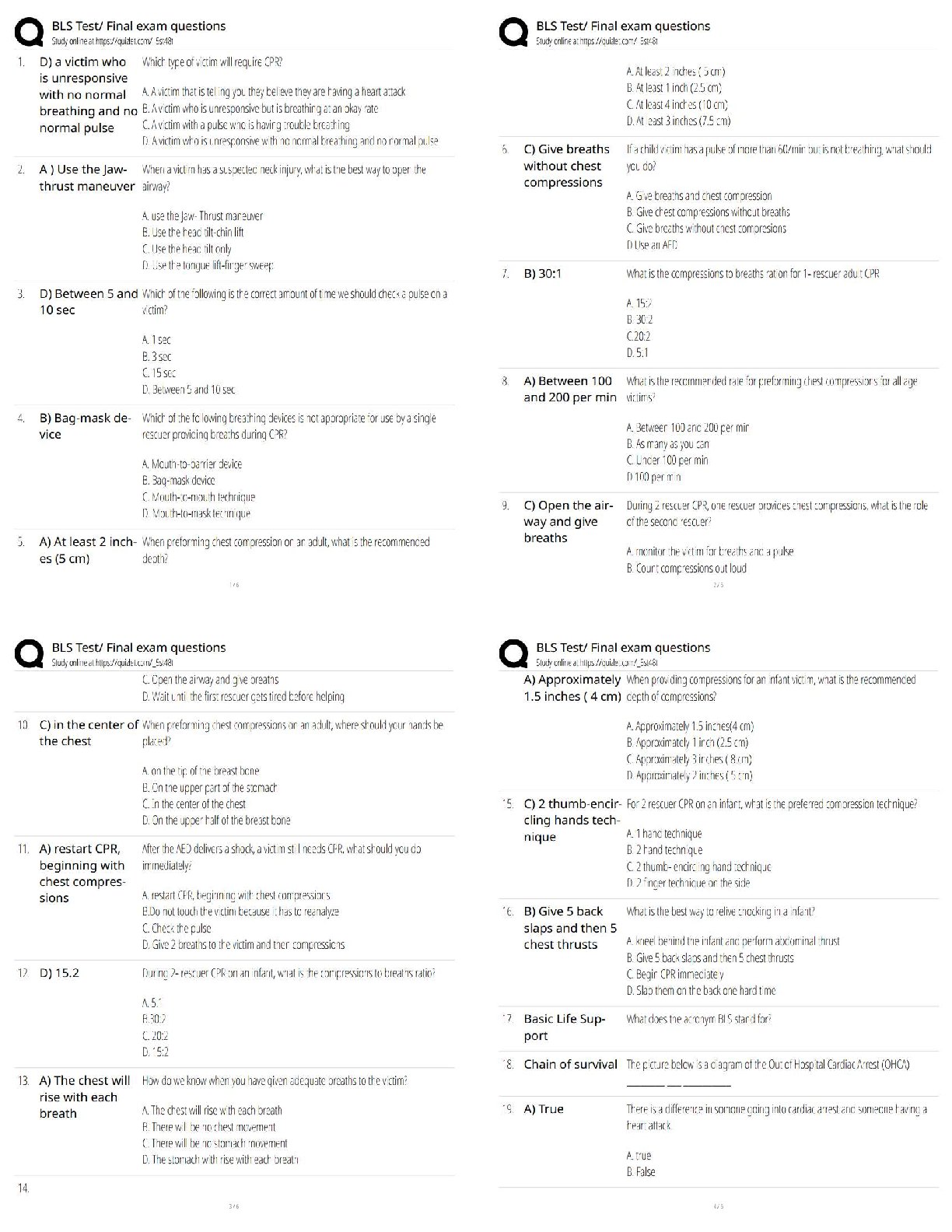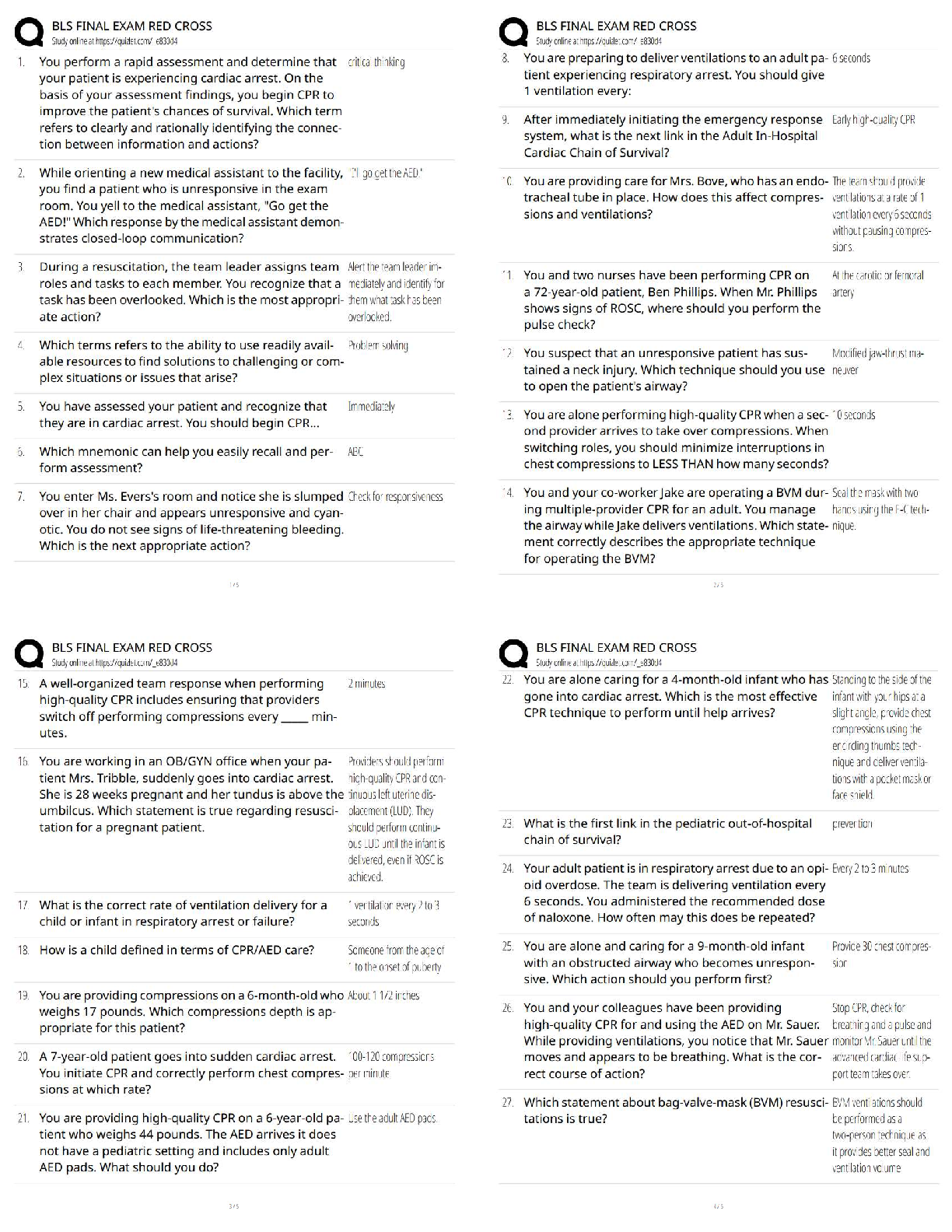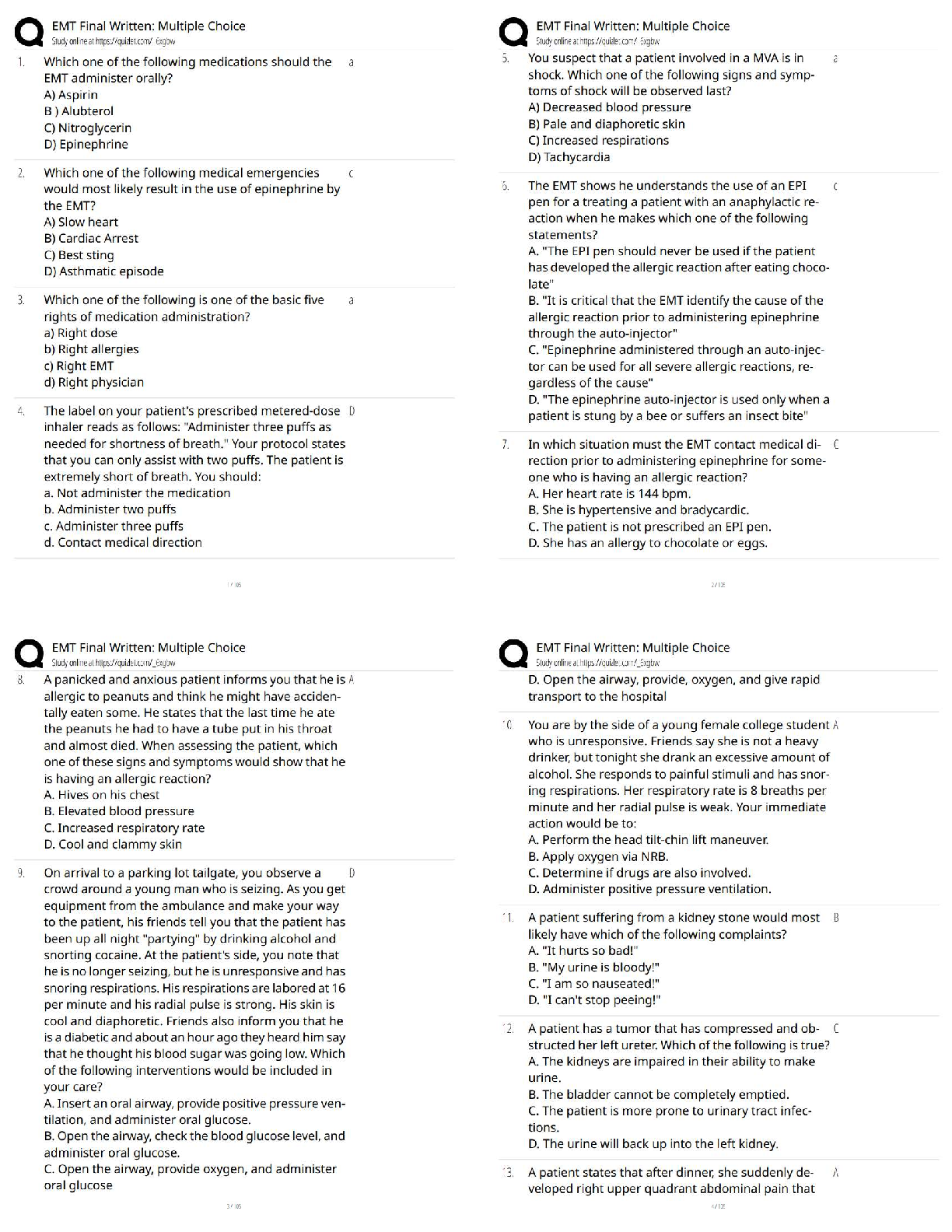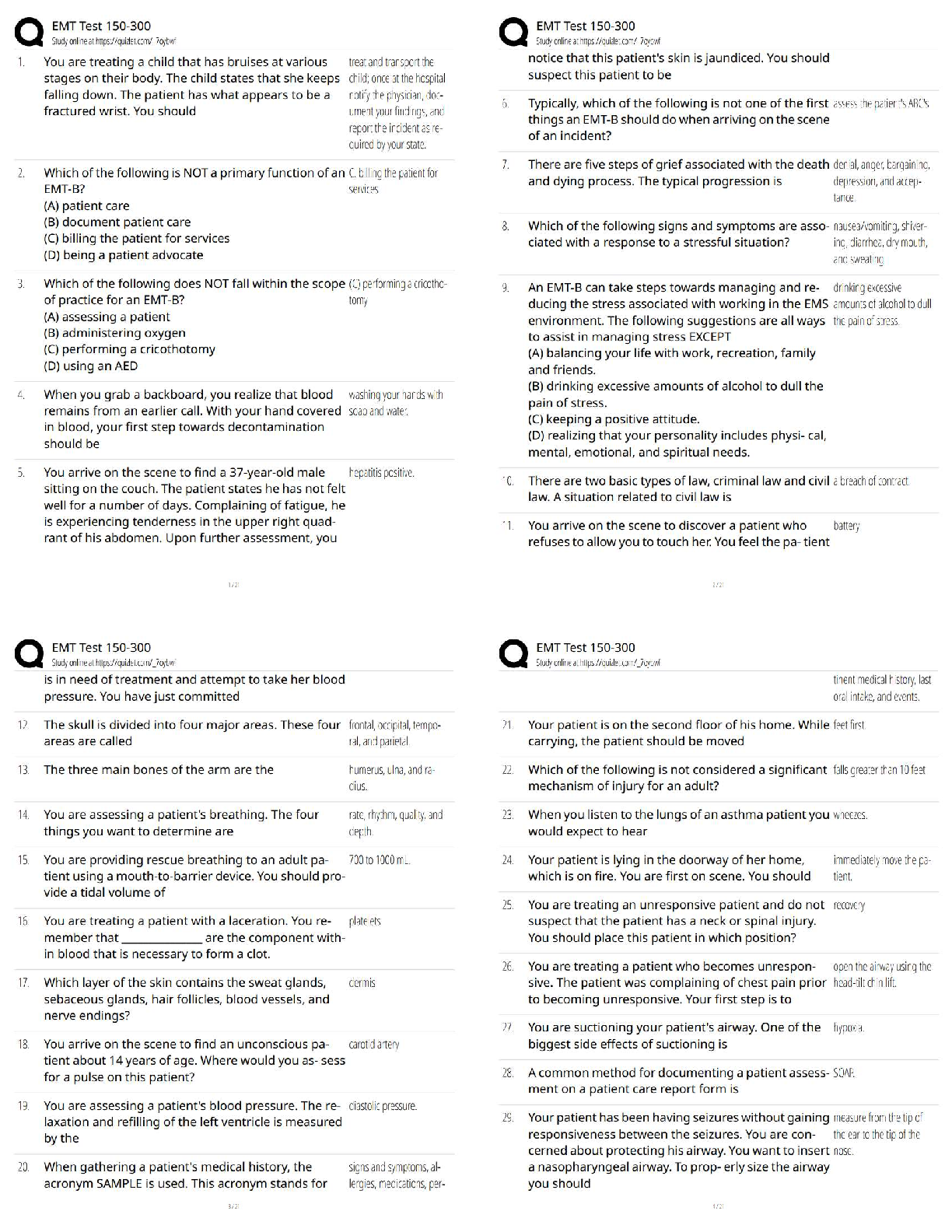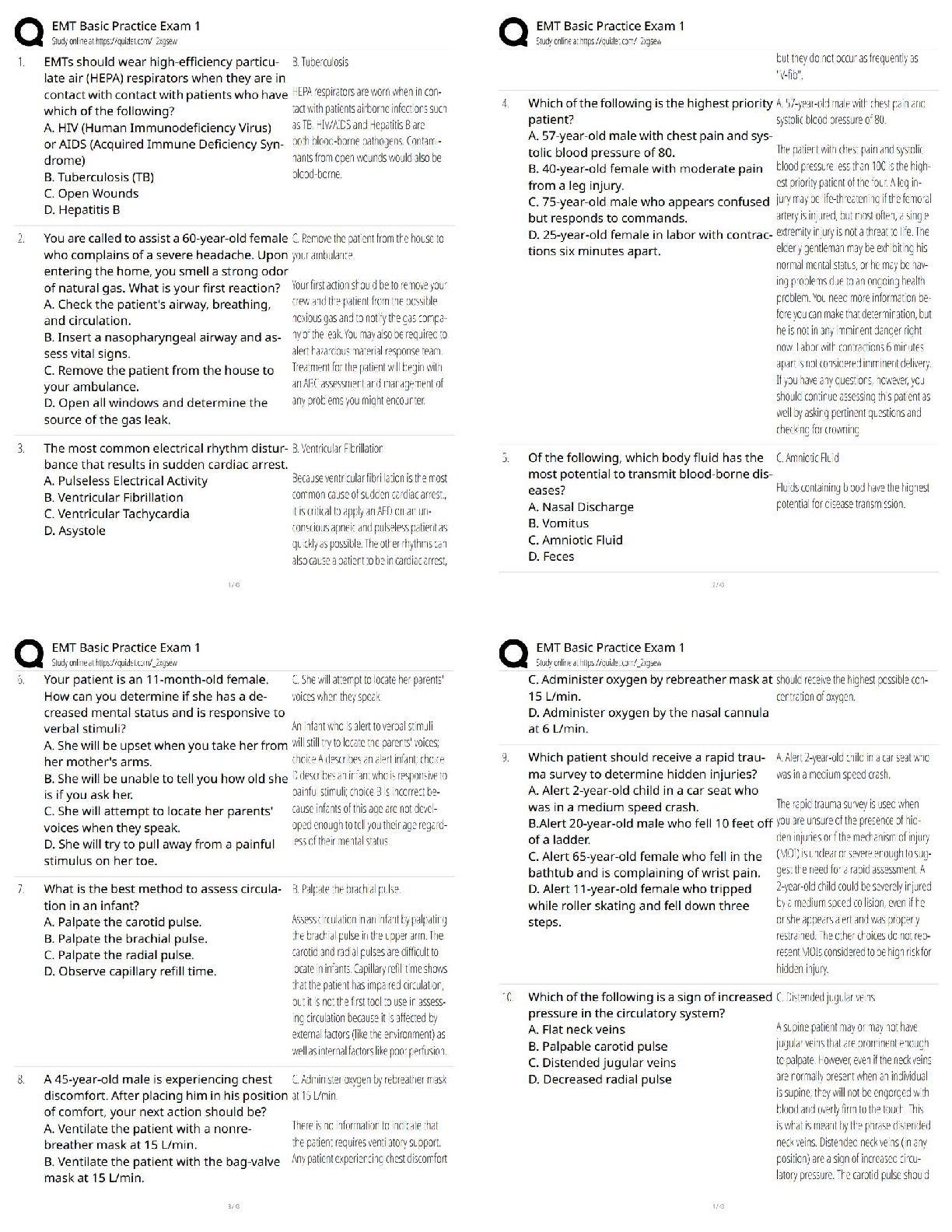Microeconomics > QUESTIONS & ANSWERS > MoicroEconomics 4.3: Price Discrimination-Part 1 - Article Analysis and Part 2 - Graph Practice. Que (All)
MoicroEconomics 4.3: Price Discrimination-Part 1 - Article Analysis and Part 2 - Graph Practice. Questions and Answer Key
Document Content and Description Below
Micro 4.3 Price Discrimination Video Help: https://youtu.be/ZiuBWSFlfoU Part 1 - Article Analysis- Read the article and answer the questions below. “Have you ever looked up flights or hotels on ... an app on your phone, only to open your laptop and see different prices? That’s exactly what happened to me recently. I was using Orbitz’s iPhone app to research a vacation package to New York City. Settling on a hotel, I accessed Orbitz’s website on my laptop to book the package. That’s odd, I thought, realizing that the package on my laptop — identical flights, hotel, room type — was $117 more (6.5% more) than the price on Orbitz’s app. A quick scan found that prices of identical vacation packages often differ between Orbitz’s app and website. I then did a side-by-side app test of the same package with a friend who was sitting next to me. Her Orbitz app price was $50 (2.8%) more than my app price. Amazingly, Orbitz knew something that I regularly give my friend good-natured grief about: She overpays for almost everything…. The bottom line, though, is that based on a few characteristics (app or web, signed in as a member or not), a rudimentary type of personalized pricing is occurring: Some customers are receiving different prices than others. The reason why retailers try to offer a personalized price goes back to the downward sloping demand curve highlighted in Economics 101. This fundamental concept illustrates that, for most products, some customers are willing to pay more than others. To exploit that, pricing managers employ techniques that try to discern — and charge — the exact price that each customer is willing to pay. Outsize profits can be extracted from “top of the demand curve” customers, who value the product highly. Meanwhile, if discounts can be discreetly offered to customers with a lower willingness to pay, additional sales (and profit) are reaped. The result is a more profitable customer base, with some shoppers paying more than others.” Excerpts from Mohammed, Rafi. “How Retailers Use Personalized Prices.” Harvard Business Review, Oct. 20, 2017 1. According to the article, what interesting differences did the author notice about the prices on his phone versus the prices on his laptop? 2. Identify two different strategies that consumers can use to help make sure that they are not paying higher prices than other people. 3. Why is price discrimination less effective in markets where consumers can easily resell products to other buyers? 4. Although price discrimination is profitable, most firms charge the same price to everyone. Identify two reasons why a firm would decide not to price discriminate. Micro 4.3 Price Discrimination Video Help: https://youtu.be/ZiuBWSFlfoU Part 2 - Graph Practice- Use the graph below to answer the following questions 5. If this unregulated monopolist does not price discriminate, what would be the price and quantity? 6. How much profit would this monopoly earn at the profit maximizing quantity? 7. Assume instead that this monopoly finds a way to perfectly price discriminate. What quantity would be produced? 8. What price would the monopolist charge if it can price discriminate? Explain. 9. How much profit would this monopoly earn if its price discriminates? 10. Explain why consumer surplus disappears when this monopoly price discriminates. 11. Explain why deadweight loss disappears when this monopoly price discriminates. A price 12. In most cases, price discrimination is legal as long as it is not done on the basis of race, religion, nationality, or gender. Do you think charging different prices for the same product is unethical? Explain your reasoning. [Show More]
Last updated: 2 years ago
Preview 1 out of 2 pages
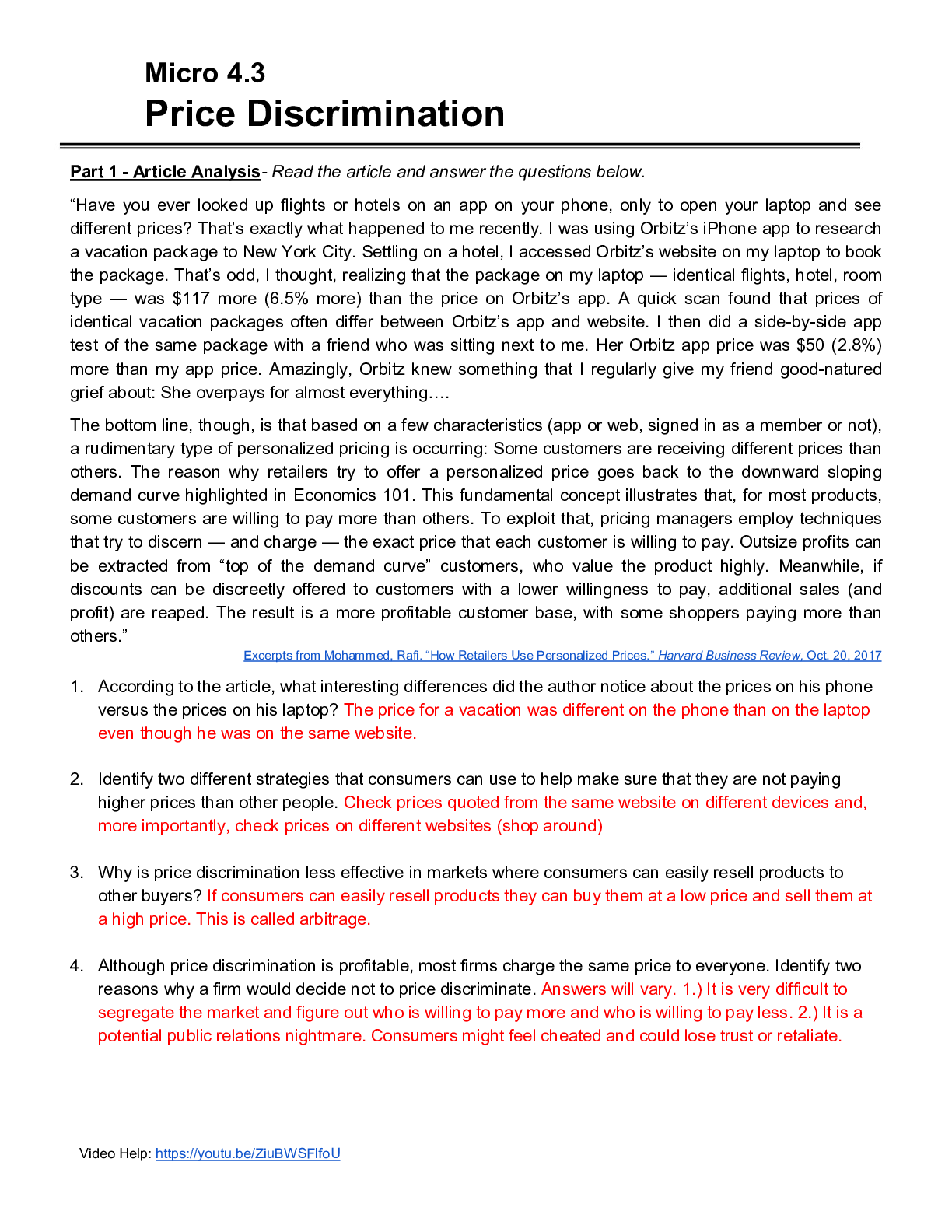
Buy this document to get the full access instantly
Instant Download Access after purchase
Buy NowInstant download
We Accept:

Reviews( 0 )
$6.50
Can't find what you want? Try our AI powered Search
Document information
Connected school, study & course
About the document
Uploaded On
Apr 02, 2023
Number of pages
2
Written in
All
Additional information
This document has been written for:
Uploaded
Apr 02, 2023
Downloads
0
Views
168

